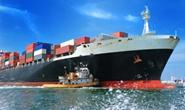Prices

August 26, 2017
AIIS: Jump in Steel Imports a Sign of Strong Economy
Written by Tim Triplett
Driven by a steep drop-off in shipments from Brazil, U.S. steel imports fell 11.5 percent from June to July. Despite the monthly decline, the 3.47 million net tons of imports were still up 6.3 percent compared to July of last year, reports the American Institute for International Steel, Alexandria, Va.
Imports from Brazil plunged more than 57 percent on the month to 282,000 net tons, more than 45 percent lower than in the previous July. Imports from Canada dropped by more than one-tenth to 465,000 net tons (4.3 percent more than in July 2016), and imports from South Korea dipped more than 13 percent to 337,000 net tons (21.4 percent less than a year earlier).
Among those that increased their steel sales to the United States in the month were the European Union, up 7.7 percent from June and 46.3 percent from July 2016 to 607,000 net tons; Russia, up 23.7 percent on a monthly basis and almost 61 percent compared to last year at 339,000 net tons; and Mexico, up 1.9 percent from June and 25 percent from a year previous at 325,000 net tons.
Through the first seven months of the year, U.S. steel imports increased by more than 22 percent compared to 2016 to 23.17 million net tons. Imports from Canada grew by more than one-tenth to 3.68 million net tons; imports from the European Union jumped by almost one-fifth to 3.13 million net tons; imports from Brazil swelled by 16 percent to 2.99 million net tons; imports from Mexico expanded by 27.5 percent to 2.08 million net tons; and imports from Russia spiraled 73.7 percent to 1.96 million net tons. Imports from South Korea, though, declined 4.5 percent to 2.27 million net tons.
Semifinished imports in July were 24.1 percent higher than they were in July 2016 at 603,000 net tons. Year-to-date imports of 5.22 million net tons were almost 42 percent higher than during the same period in 2016.
Critics may point to the 22 percent increase in year-to-date imports as an indication that trade restrictions are needed, but it is actually a sign that the economy is growing, asserts Richard Chriss, president of AIIS, which represents foreign steel producers. Businesses need access to quality steel imports at global market prices in order to expand. Protectionist measures that some say should be implemented to shield domestic manufacturers from foreign competition would disrupt the steel supply chain, drive up capital costs, and increase expenses downstream all the way to the consumer, he added.







